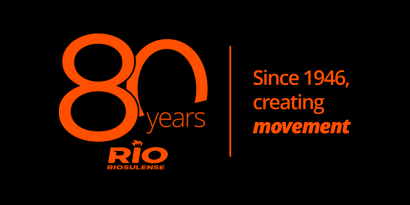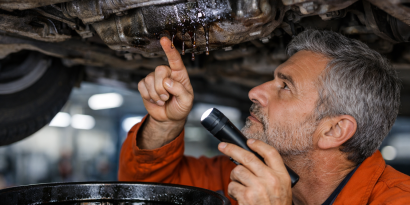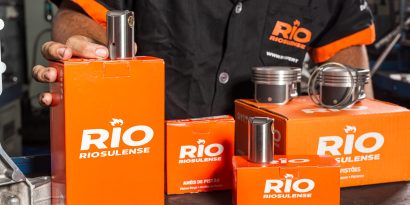Is your vehicle showing signs of power loss, increased fuel consumption, or smoke coming from the exhaust? These symptoms could be related to cylinder wear in the engine. Understanding the right time to perform a cylinder regrind is essential for ensuring your car’s performance and longevity.
Below, discover how to identify when a cylinder regrind is necessary, why it matters, and how to choose top-quality parts to keep your engine running smoothly for many years.
Why do engine cylinders wear out?
Over time and as the miles go by, the internal components of the engine undergo natural wear and tear. The cylinders, where combustion occurs, are constantly exposed to the pistons’ movements and high temperatures. Factors such as inadequate lubrication, overheating, severe driving conditions, and poor maintenance accelerate the deterioration of these metal walls.
When cylinders lose their shape or show scratches and wear, the seal between the piston, rings, and cylinder is compromised. This leads to a series of symptoms and issues in the engine’s operation—at this point, cylinder regrinding becomes necessary.
Main symptoms indicating it’s time for a cylinder regrind
Check below the most common signs that may indicate it’s time to look for a trusted cylinder regrinding service:
- Power loss: The vehicle doesn’t respond well during acceleration, even after basic maintenance like spark plug and filter changes.
- Excessive fuel consumption: The engine consumes more fuel than normal, with no visible fuel leaks.
- Oil burning: Blue or whitish smoke appears from the exhaust, produced when engine oil burns together with the fuel.
- Hard starting: The car is slow to start in the morning or after being parked, especially in cold weather.
- Frequent overheating: The engine temperature rises often, even with proper water or oil levels.
- Leaks and residues: Oil stains under the car, metallic particles in oil analysis, or metal dust on spark plugs are signs of internal wear.
- Internal noises: Metallic sounds, knocking, or unusual noises during engine operation.
If your vehicle shows one or more of these symptoms, it’s best to consult a specialized engine shop for a thorough inspection and, if necessary, a cylinder regrind.
Stages of the cylinder regrinding process
When properly performed, regrinding restores original performance and efficiency to the engine. The process can include:
- Measuring the cylinders to identify ovality, taper, or scratching.
- Precision machining to restore the internal surface of the cylinders, eliminating imperfections.
- Replacing sealing components (piston rings, bearings, gaskets, etc.).
- Fine adjustments to ensure correct fit between pistons, rings, and cylinder walls.
Each step requires extreme precision and specialized equipment, highlighting the importance of choosing highly reputable shops and suppliers.
Frequently asked questions about cylinder regrinding
1. Is regrinding always the only solution?
Not always. In mild cases, procedures like honing or replacing rings may solve the issue. Only after a technical assessment can you determine the real need.
2. How long does the engine last after regrinding?
With quality parts and proper maintenance, the engine’s lifespan is similar to a new engine, often surpassing 100,000 kilometers.
3. Can regrinding be avoided?
Proper engine lubrication, preventing overheating, and regular servicing are the best ways to delay cylinder wear.
4. How much does cylinder regrinding cost?
The price depends on the vehicle, engine type, degree of wear, and which parts are replaced. What’s most important is investing in reliable parts and high-quality services to avoid future rework.
Trust in RIO’s tradition and technology for high-precision automotive parts
If you want quality and confidence in your engine restoration, choose parts and components from a brand that’s been a reference since 1946. RIO offers a complete portfolio with cylinders, rings, valves, guides, bearings, pistons, kits, and more—all developed with advanced materials and manufactured under strict quality control.
Whether for light vehicles, heavy-duty vehicles, agricultural machinery, motorcycles, or railway equipment, you’ll find the exact solution for your engine’s needs at RIO.
Need to regrind or restore your engine? Contact the RIO team and find the ideal parts for your project, ensuring maximum durability and performance for your vehicle!
Optimize your engine’s performance and lifespan: trust RIO’s high-standard parts!





